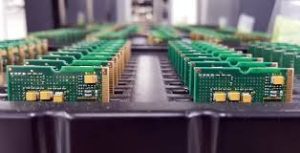Introduction
PCB prototypes are not only essential for design validation but can also play a significant role in expediting the overall manufacturing process. This article delves into how leveraging PCB prototypes can accelerate manufacturing timelines and streamline production.
Rapid Prototyping
Quick Turnaround Time
Utilizing PCB prototypes allows manufacturers to swiftly iterate on designs, significantly reducing the time required for initial testing and validation. Traditional manufacturing processes often involve lengthy lead times, but with PCB prototype services, turnaround times can be as short as 24 hours.
Agile Development
By incorporating PCB prototypes into the manufacturing workflow, companies can adopt an agile approach to product development. This enables them to respond quickly to design changes, market demands, and emerging trends, ultimately speeding up the entire manufacturing cycle.
Enhanced Efficiency
Minimized Rework
Reworking faulty designs during mass production can be time-consuming and costly. PCB prototypes help identify and rectify design flaws early in the process, minimizing the need for extensive rework and ensuring smoother production runs.
Optimized Processes
Through iterative testing and refinement, PCB prototypes allow manufacturers to optimize manufacturing processes for maximum efficiency. By fine-tuning parameters such as material selection, component placement, and assembly techniques, companies can achieve higher yields and faster production rates.
Cost Savings
Reduced Scrap Rates
Wastage is a common issue in manufacturing, particularly when dealing with complex electronic assemblies. PCB prototypes enable manufacturers to identify and address potential yield-limiting factors before scaling up production, thereby reducing scrap rates and minimizing material wastage.
Lower Development Costs
Investing in PCB prototypes upfront can lead to significant cost savings in the long run. By catching design flaws early and fine-tuning manufacturing processes, companies can avoid expensive rework, minimize production delays, and ultimately lower overall development costs.
Quality Assurance
Rigorous Testing
Quality is paramount in manufacturing, and PCB prototypes undergo rigorous testing to ensure they meet industry standards for performance and reliability. By thoroughly vetting prototypes before mass production, manufacturers can deliver high-quality products that meet customer expectations.
Continuous Improvement
PCB prototypes not only serve as a validation tool but also as a platform for continuous improvement. Feedback gathered from prototype testing can inform future design iterations and process optimizations, driving ongoing enhancements in product quality and manufacturability.
In conclusion, integrating PCB prototypes into the manufacturing process can lead to significant gains in efficiency, cost savings, and quality assurance. By leveraging rapid prototyping techniques and embracing an agile mindset, companies can accelerate their manufacturing timelines while delivering superior products to market. Visit pcb prototype for more information on how PCB prototypes can streamline your manufacturing workflow.
